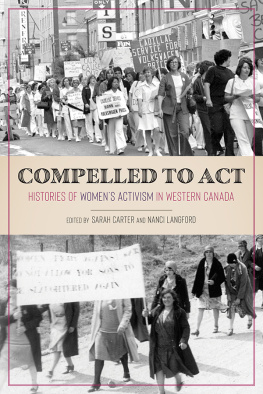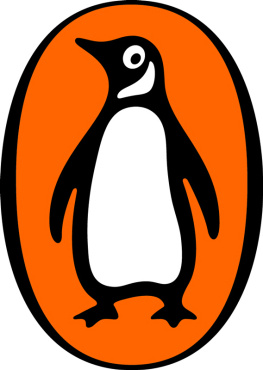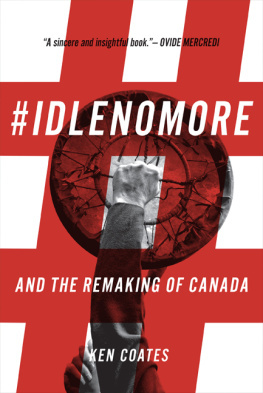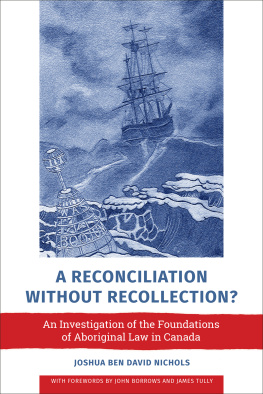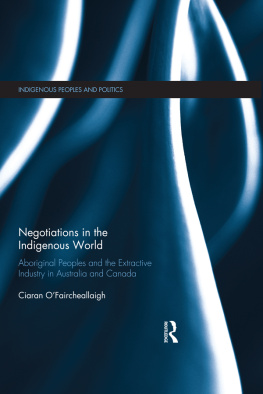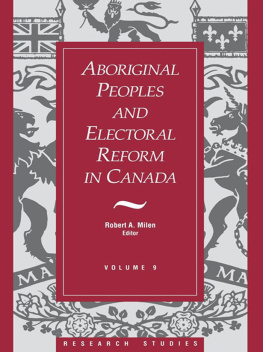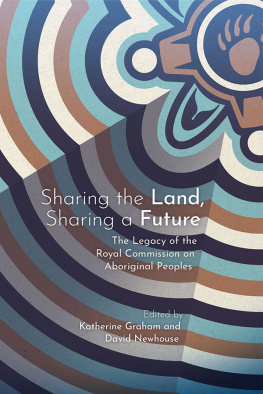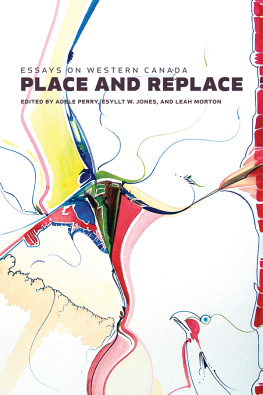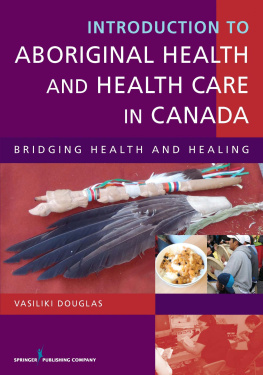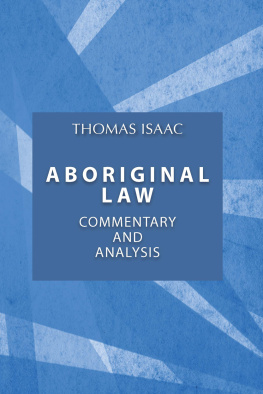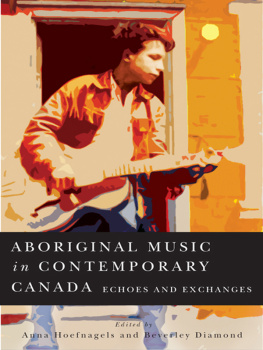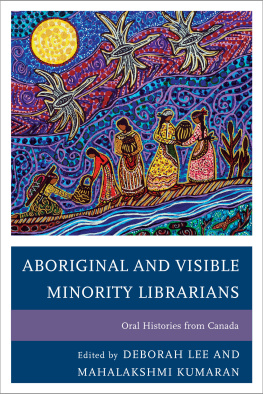Sarah Carter - Aboriginal People and Colonizers of Western Canada to 1900
Here you can read online Sarah Carter - Aboriginal People and Colonizers of Western Canada to 1900 full text of the book (entire story) in english for free. Download pdf and epub, get meaning, cover and reviews about this ebook. year: 1999, publisher: University of Toronto Press, genre: Politics. Description of the work, (preface) as well as reviews are available. Best literature library LitArk.com created for fans of good reading and offers a wide selection of genres:
Romance novel
Science fiction
Adventure
Detective
Science
History
Home and family
Prose
Art
Politics
Computer
Non-fiction
Religion
Business
Children
Humor
Choose a favorite category and find really read worthwhile books. Enjoy immersion in the world of imagination, feel the emotions of the characters or learn something new for yourself, make an fascinating discovery.

- Book:Aboriginal People and Colonizers of Western Canada to 1900
- Author:
- Publisher:University of Toronto Press
- Genre:
- Year:1999
- Rating:3 / 5
- Favourites:Add to favourites
- Your mark:
- 60
- 1
- 2
- 3
- 4
- 5
Aboriginal People and Colonizers of Western Canada to 1900: summary, description and annotation
We offer to read an annotation, description, summary or preface (depends on what the author of the book "Aboriginal People and Colonizers of Western Canada to 1900" wrote himself). If you haven't found the necessary information about the book — write in the comments, we will try to find it.
A comprehensive survey of relations between Aboriginal peoples and colonizers of Western Canada, with a strong emphasis on the multiplicity of current perspectives on the issues.
Sarah Carter: author's other books
Who wrote Aboriginal People and Colonizers of Western Canada to 1900? Find out the surname, the name of the author of the book and a list of all author's works by series.
Aboriginal People and Colonizers of Western Canada to 1900 — read online for free the complete book (whole text) full work
Below is the text of the book, divided by pages. System saving the place of the last page read, allows you to conveniently read the book "Aboriginal People and Colonizers of Western Canada to 1900" online for free, without having to search again every time where you left off. Put a bookmark, and you can go to the page where you finished reading at any time.
Font size:
Interval:
Bookmark:
ABORIGINAL PEOPLE AND COLONIZERS OF WESTERN CANADA TO 1900
The history of Canadas Aboriginal peoples after European contact is a hotly debated area of study. In Aboriginal People and Colonizers of Western Canada to 1900, Sarah Carter looks at the cultural, political, and economic issues of this contested history, focusing on the Western interior, or what would later become Canadas Prairie provinces.
This wide-ranging survey draws on the wealth of interdisciplinary scholarship of the last three decades. Topics include the impact of European diseases, changing interpretations of fur trade interaction, the Red River settlement as a cultural crossroad, missionaries, treaties, the disappearance of the buffalo, the myths about the Mounties, Canadian Indian policy, and the policies of Aboriginal peoples towards Canada.
Carter focuses on the multiplicity of perspectives that exist on past events. Referring to nearly all of the current scholarship in the field, she presents opposing versions on every major topic, often linking these debates to contemporary issues. The result is a sensitive treatment of history as an interpretive exercise, making this an invaluable text for students as well as all those interested in Aboriginal/non-Aboriginal relations.
(Themes in Canadian Social History)
SARAH CARTER is a professor in the Department of History at the University of Calgary.
THEMES IN CANADIAN SOCIAL HISTORY
Editor: Craig Heron
SARAH CARTER

University of Toronto Press Incorporated 1999
Toronto Buffalo London
Printed in Canada
Reprinted 2007
ISBN 0-8020-4147-7 (cloth)
ISBN 0-8020-7995-4 (paper)

Printed on acid-free paper
Canadian Cataloguing in Publication Data
Carter, Sarah, 1954
Aboriginal people and colonizers of Western Canada to 1900
(Themes in Canadian social history)
Includes bibliographical references and index.
ISBN 0-8020-4147-7 (bound) ISBN 0-8020-7995-4 (pbk.)
1. Northwest, Canadian Ethnic relations. 2. Indians of North America Prairie Provinces History. 3. Mtis Prairie Provinces History.* 4. Northwest, Canadian History To 1870.* 5. Northwest, Canadian History 18701905.* 6. Indians of North America Prairie Provinces First contact with Europeans. I. Title. II. Series.
E78.P7C377 1999 971.200497 C99-931368-1
University of Toronto Press acknowledges the financial assistance to its publishing program of the Canada Council for the Arts and the Ontario Arts Council.
University of Toronto Press acknowledges the financial support for its publishing activities of the Government of Canada through the Book Publishing Industry Development Program (BPIDP).

To the memory of Irene M. Spry
Professor Emeritus, Department of Economics
University of Ottawa
I am grateful to the Department of Archaeology of the University of Calgary, and especially to Dr Jane H. Kelley and Dr Nick David, for providing me with congenial writing space during the term of my Killam Resident Fellowship, which permitted me to complete work on this book. I would like to thank the Killam Foundation for this award. I also appreciated the superb editorial assistance and guidance of Dr Craig Heron, and I thank the University of Toronto Press for the invitation to write this book. The comments of an anonymous reviewer were very helpful. Colleagues and students at the universities of Saskatchewan, Manitoba, Winnipeg, and Calgary have contributed a great deal to the contents of this book. Thanks to Harold Cardinal for providing me with a copy of his LLM thesis from Harvard Law School, and for his insights into Cree history and world-view. Thanks are also due to Rick Lalonde of Calgary, who drew the map. I am grateful to University of Calgary history honours students Robert Bridge, Jennifer Howse, and Kathleen Renne for their helpful comments on the final draft of this work.
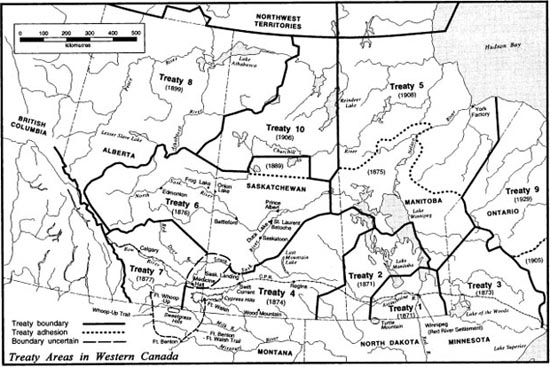
ABORIGINAL PEOPLE AND COLONIZERS OF WESTERN CANADA TO 1900
The area around the village of Herschel, in west-central Saskatchewan, is a rich source of ancient Aboriginal arte-facts, including tipi rings, cairns, firepits, rock alignments, buffalo jumps, kill and processing sites, a medicine wheel, and ceremonial and vision-quest sites. There are also petro-glyphs (images carved on rocks). The largest and most remarkable of these stones has the appearance of a recumbent buffalo, and part of it has been systematically carved and grooved to resemble the animals ribcage. Like other ancient artefacts of the world, such as Stonehenge, this ribstone petro-glyph has generated many theories about its uses and meaning. It may have had astronomical significance, as the rock is precisely positioned to face the east and to show the equinox. It was likely a sacred site, as there is evidence of cultural offerings at the base of the rock. It may have been a teaching stone, carved to represent the First Peoples understanding of the life journey and of the buffalo as the source of life. But what the ribstone petroglyph and the other artefacts clearly attest to is the great antiquity of the civilizations that have occupied Western Canada. A buffalo horn found at a processing site is 2,065 years old, and carbon-dating puts the earliest finds at A.D. 350. Clearly, a remarkably stable and highly successful way of life persisted for thousands of years.
Generations of Aboriginal people found the Eagle and Bear Hills near Herschel to be an ideal location, as the area had buffalo, shelter, water, wildfowl, berries, and plenty of trees. Beginning about 100 years ago, newly arrived immigrants to Western Canada hoped that these hills could be their ideal habitat. Around 1910 my grandfather, from a small village near London, England, was among the hopefuls who attempted to homestead in the Eagle Hills. Although he came armed with a book on how to build a house (and another on how to play the zither), this venture lasted only briefly, as it did for a great number of the would-be homesteaders who were unprepared for survival on the Northern Plains. Others were more successful: a new farming society and economy was established, and at times prospered. Most of the newcomers to Western Canada were confident that a superior way of life was supplanting an Aboriginal past that had nothing to teach them. Although in 17723 Hudsons Bay Company employee Matthew Cocking observed the stone cairns, tipi rings, pottery, and other archaeological treasures of the Eagle Hills, later generations of European visitors ignored, then forgot, them. Today, at a time when the new agricultural economy is not flourishing, residents of Herschel see the key to the survival and future of their community in the Aboriginal past and the ancient treasures that they hope will attract visitors and provide a new lease on life. Although named for an English astronomer, the town of Herschel will depict Aboriginal astronomy, among other themes, in the deserted schoolhouse that will serve as the interpretive centre. Herschel is not alone in this venture, as other prairie locations, small and large, have set about to capitalize on this unique heritage as a means of revitalizing communities.
Next pageFont size:
Interval:
Bookmark:
Similar books «Aboriginal People and Colonizers of Western Canada to 1900»
Look at similar books to Aboriginal People and Colonizers of Western Canada to 1900. We have selected literature similar in name and meaning in the hope of providing readers with more options to find new, interesting, not yet read works.
Discussion, reviews of the book Aboriginal People and Colonizers of Western Canada to 1900 and just readers' own opinions. Leave your comments, write what you think about the work, its meaning or the main characters. Specify what exactly you liked and what you didn't like, and why you think so.

